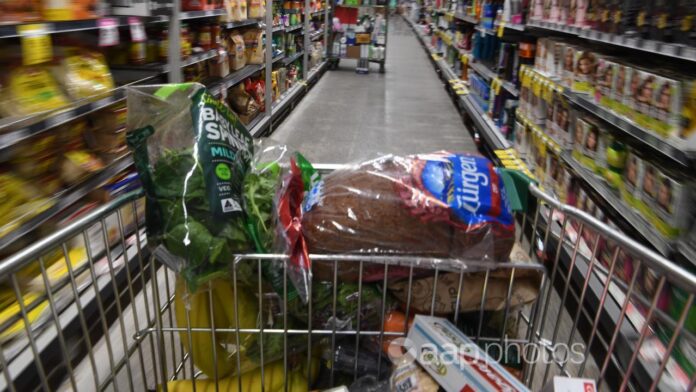CANBERRA (London Post with AAP) By Dr Majid Khan -Inflation has fallen for a second month in a row, increasing the chances of a moratorium on interest rates at next week’s Reserve Bank meeting.
Consumer prices rose 6.8% in his 12 months to February, down from 7.4% annual growth in January.
A further slowdown in the Australian Bureau of Statistics monthly consumer price index had been expected, but the slowdown was more severe than expected, with consensus forecasts for a 7.2% rise in the year to February.
Housing was the biggest driver of annual inflation, but annual growth slowed to 9.9% from 10.4% in January.
Other key ABS-hit annual growth drivers – food and non-alcoholic beverages and transport and leisure – also weakened in the month but remained elevated. However, rental prices remained stable for the second month in a row, growing by 4.8% annually, with a tight rental market and low vacancy rates weighing on rents.
Leisure travel and accommodation also fell more than expected in February, down 14.9% from 17.8% in January.
Michelle Marquardt, head of pricing statistics at ABS, said the sharp reversal in holiday-related prices was due to strong demand for domestic and international fares leading up to Christmas and during the school holidays.
Chancellor Jim Chalmers welcomed the “6 in front of the numbers” but said inflation was still unacceptably high and well above the RBA’s target range of 2-3%.
“Inflation peaked late last year and has moderated this year, further evidence, but it will rise longer than we would like,” he told parliament on Wednesday. The monthly CPI reading, which provides a more recent but less complete picture of consumer price movements compared to the quarterly index, is on the RBA’s watchlist ahead of the April cash rate decision.
Central banks are creating room for a pause or recovery, depending on incoming data flows, and economists are divided on which way it will fall.
Data have been mixed since the March rate hike, with weak inflation and retail sales data suggesting the economy is losing momentum, but strong employment and business conditions indicate continued resilience.
KPMG chief economist Brendan Lin said the RBA is likely to follow other central banks in raising rates.
“Today’s data will give the RBA something to consider, but KPMG thinks inflation is still high enough and jobs too strong for the RBA to stop raising rates. Rinne. He said Australia appeared to be on the same trajectory as its global peers in the fight against inflation, with price growth appearing to have peaked, but a tough economic environment spurred concerns of stubbornly high core inflation.
Diana Musina, senior economist at AMP Capital, said the monthly inflation report and other key data sources should be enough to persuade the RBA to step down next week.
She also said the US and European banking crises – partly due to rising interest rates – will also weigh on board decisions.
The company’s economists expect him to pause at the RBA meeting next Tuesday, followed by a rate cut later in the year.
Thursday, April 25, 2024
More
POPULAR POSTS
© London Post, All Rights Reserved by Independent Media Group UK Limited.






